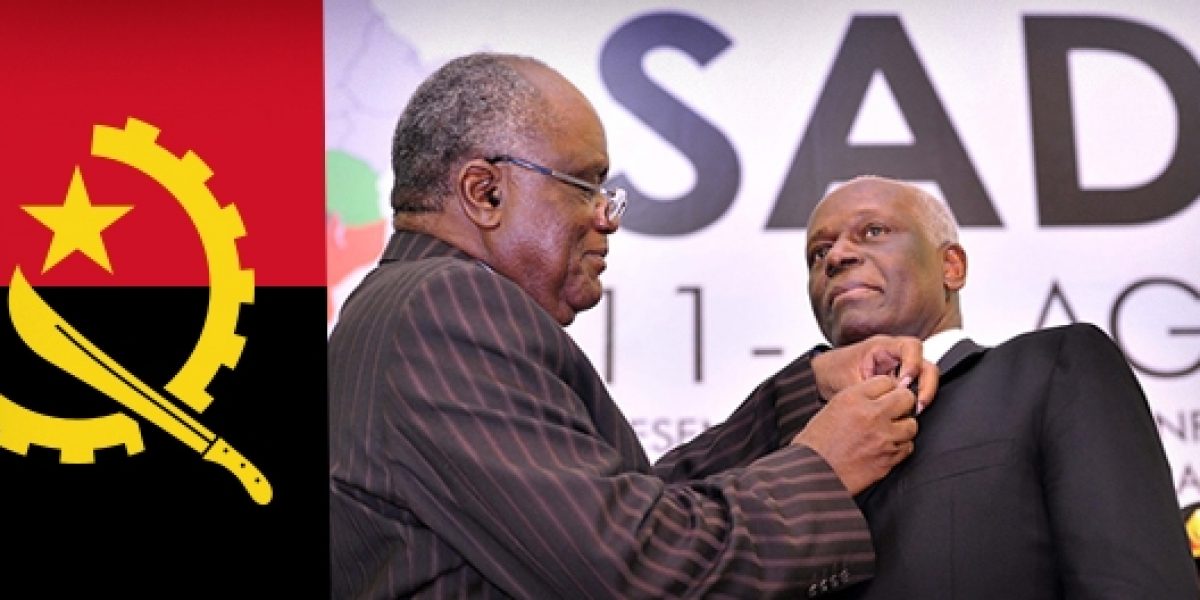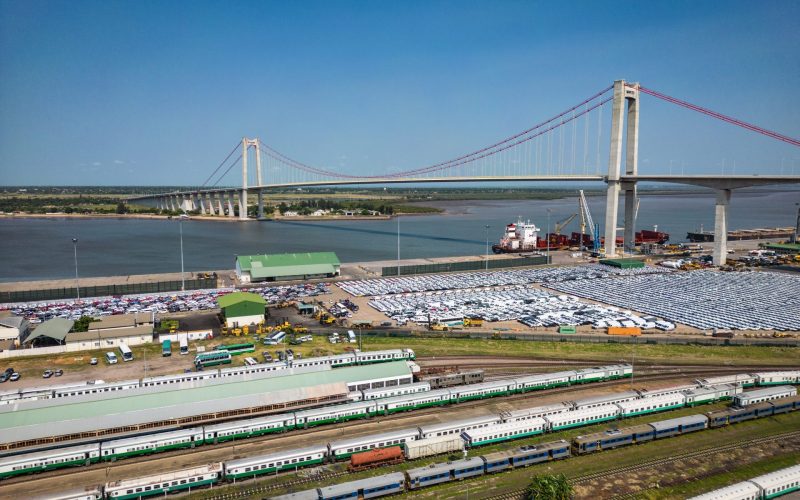A customs union makes good economic sense. Reducing trade barriers and encouraging the freer flow of goods between member states will boost regional trade flows, a key SADC goal for deeper integration. In the longer term, it will put the bloc in a good position to join up to the planned Cape to Cairo Tripartite African Free Trade Area (TFTA) which proposes to link SADC to the East African Community (EAC) and Common Market for Eastern and Southern Africa (COMESA).
However, for all the good intentions about regional integration and all the roadmaps marking the way, there is a major obstacle: Angola.
Angola is SADC’s second largest economy and has yet to even agree to terms on which it will enter the FTA. It blows hot and cold regarding its intentions and has frustrated fellow member states that are desperate to exploit the trade opportunities the booming country offers.
Although SADC has little choice but to continue its plans and negotiations for the Customs Union and the TFTA without Angola, it is hard to see how the bloc can really succeed with its integration agenda with such a key player sitting on the sidelines. Angola says it does not have the “conditions” to trade freely with its neighbours and that it will only join the FTA when it feels ready. This was reiterated again at the SADC 2013 Summit.
It is true that after three-decades of civil war the country produces little apart from crude oil, which accounts for about 45% of its gross domestic product (GDP), 75% of government revenues and 90% of export earnings. An analysis of the UN Commodity Trade Statistics Database (UN Comtrade) shows that in 2012 only 4% of Angola’s exports went to SADC, compared to a bloc average of 12.8%.
This is perhaps no surprise given the limited refining capacity within SADC to be able to process Angola’s crude oil that instead flows by the billions of barrels to the USA, India and China. Despite its stellar post-war GDP growth, the country is also dogged by severe logistical and capacity constraints. These include poor electricity and water supplies, bad roads, high costs, limited skillsets and endemic corruption, all of which are as much to do with oil dependency and Dutch Disease as they are with a physical legacy of conflict. Despite once having been a major exporter of maize and coffee, it was also largely self-sufficient in terms of food production. It is now, however, a net importer of food. While manufacturing output is growing, it is still limited, and local producers struggle to compete on price with imports, that for now remain subject to tariffs.
Angola fears that by opening up its borders to duty-free trade with the rest of SADC, it will kill off its nascent industries and be left even more oil dependent than it is now. This is a realistic concern, but it does not fully explain why Angola favours imports from China, Portugal and Brazil over those from its near neighbours with whom Angola claims to share a common goal of integration. Recently-announced plans in Luanda to hike tariff duties on certain goods that are produced domestically indicate a commitment to boosting local manufacturing and food production.
But a highly-protectionist approach, unless backed up with adequate domestic support and incentives that extend beyond ministerial speeches, may only serve to further undermine development. The SADC Protocol on Trade was signed in 1996. Regional tariff phase-downs began in 2000 and the SADC FTA started operating in 2008.
By 2012 all member states were supposed to have joined – and be working together towards – a SADC Customs Union, though that deadline has quite evidently come and gone. The Seychelles and the Democratic Republic of Congo, the latter with arguably many more economic and political challenges than Angola, are the other two countries still outside the FTA, but both are moving forward and are expected to enter soon.
The latest indication from Angola came just before the SADC Summit when the Angolan Minister of Trade, Rosa Pacavira, was reported to confirm that her country would not submit any formal offer to join the FTA until some outstanding issues are resolved, including in the energy, agriculture and other sectors. Angola may have long-term ambitions to join the FTA, but by cutting itself off from SADC it risks damaging regional trade ties that it may in the future depend on for its exports. The country may also for now be Africa’s second-largest producer of oil (behind Nigeria), but its oil is a finite resource and it needs a plan B.
Moreover, the well-documented high cost of living in Angola is routinely blamed on the dependence on expensive overseas imports, yet the government appears reluctant to allow lower-cost imports from its SADC neighbours to bring these costs down. SADC has a core commitment to reducing poverty, yet it stays silent as vested-interests keep Angolan prices high.
And although business leaders across the SADC bloc are frustrated by Angola’s behaviour, few seem prepared to publicly challenge the status quo, for fear of losing out on the small business links they have managed to establish in this highly-lucrative market.
While researching SAIIA’s soon-to-be-released paper on Angola’s approach to regional integration, the SADC Secretariat and other member states were asked about the apparent acquiescence towards Angola’s lack of co-operation. The response was that Angola is a sovereign state, whose position must be respected.
On 2 August 2013, South Africa’s Minister in the Presidency in charge of the National Planning Commission, Trevor Manuel, stressed the need for deeper regional integration and urged countries to remember their ‘collective capability’. Speaking at a lecture in Kampala, Uganda, he said: ‘If as Africa we remain as 54 sovereign states, each with our own perspectives on how to capture all of the accouterments of such sovereignty, and use our resources in the quest for such sovereign perfection, we are guaranteed to lose.’ He also added: ‘We have to think of a single Africa, and flatten the sovereign impediments to that single objective. It is worth reminding ourselves of our collective capability.’
If anyone from Angola heard the speech, they would do well to take note.








